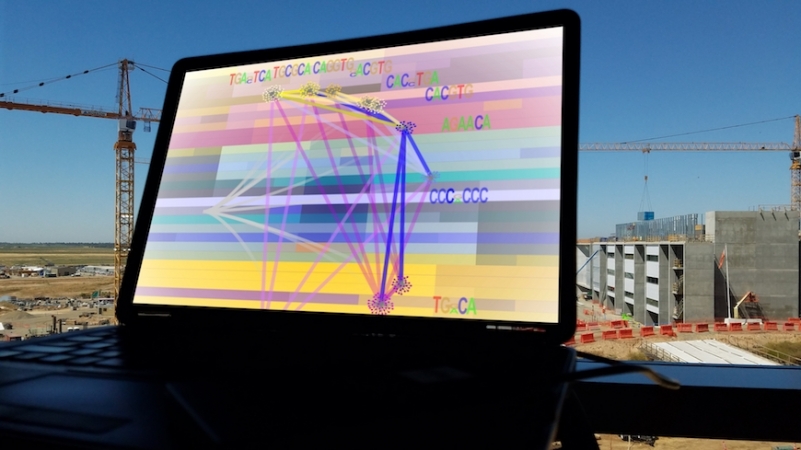
New research published today in the Nature Partner journal npj Systems Biology and Applications establishes how genome-wide data in combination with systems biology analyses can identify master regulators and new drug targets in therapy-resistant cancers.
The new discovery explains how cancer controls specific effector networks — findings with important implications for the future of cancer therapy.
Scientists have realized the importance of epigenomic control in development and disease processes.
“Epigenomics does not directly affect the DNA itself,” Professor Fabian V. Filipp said. “A hidden layer of regulation controls the activity of genes.”
Epigenomic and metabolic signals beyond the genetic code of DNA determine which cellular programs are active and which ones are silenced. Such epigenomic control networks have important implications for the future of cancer therapy.
“In cancer, if we disregard or insufficiently understand epigenomic networks, tumor cells have the ability to rapidly adapt to drug treatment and resistance may arise,” Filipp said.
In cancer, epigenetic master regulators accomplish target-specificity of their phenotypic program by cooperation with members of the transcriptional machinery. Filipp’s cancer systems biology team at UC Merced introduced a universal workflow for elucidation of regulatory cooperation networks.
“By integrating different genomic features of complementary epigenomic and transcriptomic data, a highly specific and hyperconnected network can be identified,” Filipp said.

On the one hand epigenomic target regions define accessible chromatin, on the other hand motifs of differentially expressed transcripts determine the target genes controlled by the cooperative forces.
"The research portfolio of Professor Filipp builds an important bridge between clinical and computational sciences," Vice Chancellor for Research Samuel Traina said. "Professor Filipp runs an interdisciplinary research program that serves and positively impacts the educational needs of California's Central Valley".

